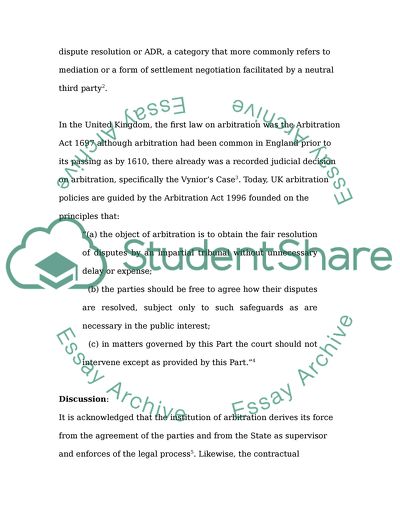Cite this document
(“UK Arbitration Essay Example | Topics and Well Written Essays - 3500 words”, n.d.)
UK Arbitration Essay Example | Topics and Well Written Essays - 3500 words. Retrieved from https://studentshare.org/law/1529551-uk-arbitration
UK Arbitration Essay Example | Topics and Well Written Essays - 3500 words. Retrieved from https://studentshare.org/law/1529551-uk-arbitration
(UK Arbitration Essay Example | Topics and Well Written Essays - 3500 Words)
UK Arbitration Essay Example | Topics and Well Written Essays - 3500 Words. https://studentshare.org/law/1529551-uk-arbitration.
UK Arbitration Essay Example | Topics and Well Written Essays - 3500 Words. https://studentshare.org/law/1529551-uk-arbitration.
“UK Arbitration Essay Example | Topics and Well Written Essays - 3500 Words”, n.d. https://studentshare.org/law/1529551-uk-arbitration.


